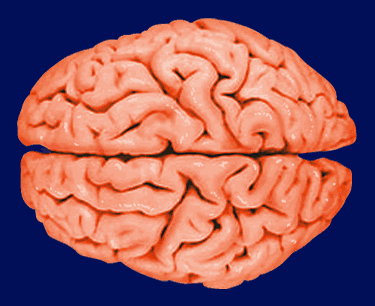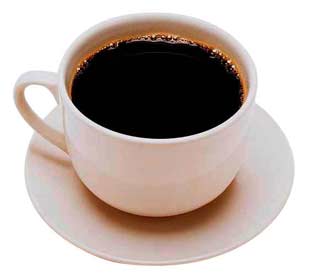Archive for the ‘Nutrition’ Category
Simple Rule for Dieting Success
If you follow this simple equation, you will achieve dieting success:
Move more –bad food + good food = Dieting success
Let’s break down this equation into its component parts:
Move More – if you burn more calories than you currently do, you will lose weight, plain and simple.
If you don’t walk around the block, take a walk around the block
If you currently walk around the block then, add intervals of sprints
If you currently walk and do intervals then, weight train
If you currently walk, do intervals and weight train then, decrease the rest periods between sets
Do you see where this is going? Take what you currently do and add more movement / decrease rest and you will burn more calories which will cause you to lose weight.
Subtract bad food – I am always fascinated when someone is given a diet and Read the rest of this entry »
Eat MORE Food and LOSE Weight!
Sounds like the tag line to some bad commercial for a new diet pill, right? It is not, but it may be just the answer that you need in order to finally lose weight.
I have noticed a recurring theme with women who want to lose weight. Women will come to me asking about losing weight, body fat in particular, and the first question I ask is, “What do you eat?” The typical response is, “I don’t eat that much so, I don’t understand why I don’t lose weight!” If someone is morbidly obese because they eat thousands of calories per day then, they need to REDUCE the number of calories they consume in order to lose weight. On the flip side, if someone is moderately overweight and they have drastically reduced their calories for a prolonged period of time, they actually need to INCREASE the amount of food they eat in order to lose weight.
In a normal example, these equations hold true:
If calories consumed < calories burned = lose weight
If calories consumed > calories burned = gain weight
The only problem with those equations is that our body tries to maintain homeostasis as a protective mechanism Read the rest of this entry »
Caffeine and Performance – Part 2
In my last post (Caffeine and Performance – Part 1), I looked at the benefits that Caffeine provides in fat loss and burning calories as well as the best form of Caffeine for the greatest results (pill form is better than coffee). In Part 2 of this 2 part series, I am going to look at how Caffeine impacts Cognitive Performance (Brain Function) and Endurance & Strength. There are numerous studies which look at the combination of Caffeine & Creatine and Caffeine & Carbohydrates as it relates to Endurance and Strength, but I am focusing on Caffeine specifically so, for our purposes, these pieces of research are excluded from my analysis.
3) Cognitive Performance
Several studies have shown that Caffeine improves both cognitive performance and mood in the general population (1,2). A study by McLellan et al. (3) showed that soldiers given Caffeine were able to complete a vigilance task with less errors and an obstacle course faster than their non-Caffeinated counterparts. These tasks were performed in a sleep deprived state (4 hours of sleep) where Caffeine was supplemented 3 times at 200 mg per dose (600 mg total) with about 2.5 hours between doses. The last dose was given 30 minutes before the testing. The Caffeine was administered via a caffeinated gum. The Vigilance task involved observing a building for 2 hours and recording any observations. Within each 20 minute block, an activity lasting 5s was presented. The Caffeine group had fewer errors than the placebo group. There were 3 Obstacle Courses and the Caffeine group completed them faster and with fewer errors than that placebo group. The study concluded that Caffeine “maintained both vigilance and physical performance during sustained operations that require periods of overnight wakefulness and restricted opportunities for daytime sleep.” (3)
Another study by Lieberman et al. (4) looked at cognitive performance of U.S. Navy Seals in a sleep deprived state when supplementing with Caffeine. Participants were randomly assigned doses of either 100, 200 or 300 mg of Caffeine in capsule form. One hour after consumption, participants performed a battery of tests related to vigilance, reaction time, working memory, motor learning and memory. Caffeine had the most significant effects on tasks related to alertness. Results were also significant for assessments related to vigilance & choice reaction time for those who received the Caffeine treatment. What was really interesting was that there was no statistical advantage of taking 300 versus 200 mg (i.e. the 300 mg group did not perform better than the 200 mg group) though there was a significant improvement in performance of the 200 mg group versus the 100 mg group. In fact, 100 mg was no more advantageous than a placebo! (4)
These studies (3,4) demonstrate the effects of Caffeine on cognitive performance Read the rest of this entry »
Caffeine and Performance – Part 1
Go to any gym on the Planet early in the morning what do you see? Alright wiseguy, fat people walking on treadmills was not the answer I was looking for! Coffee, and lots of it, as far as the eye can see. The majority of these folks are drinking it to make sure they don’t fall asleep and knock their front teeth out while walking on the treadmill. Little do they know that caffeine can aid them in performance and their goal of fat loss, though drip coffee is not the most efficient nor effective method.
In this 2 Part Series, I am going to look at:
1) The Best Form of Caffeine to consume (i.e. drip coffee vs. powder (caffeine anhydrous))
2) The effectiveness of supplementing Caffeine for Fat Loss (lipolysis)
3) The impact of Caffeine on Cognitive Performance (i.e. Brain Function)
4) The Ergogenic (performance-enhancing) effects of caffeine on Endurance and Strength
Here is a brief overview of caffeine:
- Caffeine is the world’s most widely consumed psychoactive substance(1)
- In North America, 90% of adults consume caffeine daily(1)
- It is the most commonly utilized substance in “energy” drinks
- It stimulates the Central Nervous System (CNS), making us feel alert
1) BEST Form of Caffeine
When consuming caffeine for performance, the best form is to consume is caffeine anhydrous (caffeine powder in a capsule). The reason for this is that it is a) cheaper and b) more effective than consuming coffee in liquid form (i.e. drip coffee).
a) Cheaper
I use NSI Caffeine Anhydrous which I purchase from Vitacost.com. There are 240 capsules and each contains 200 mg of caffeine. The whole bottle costs $7. So, let’s do the math… Read the rest of this entry »







